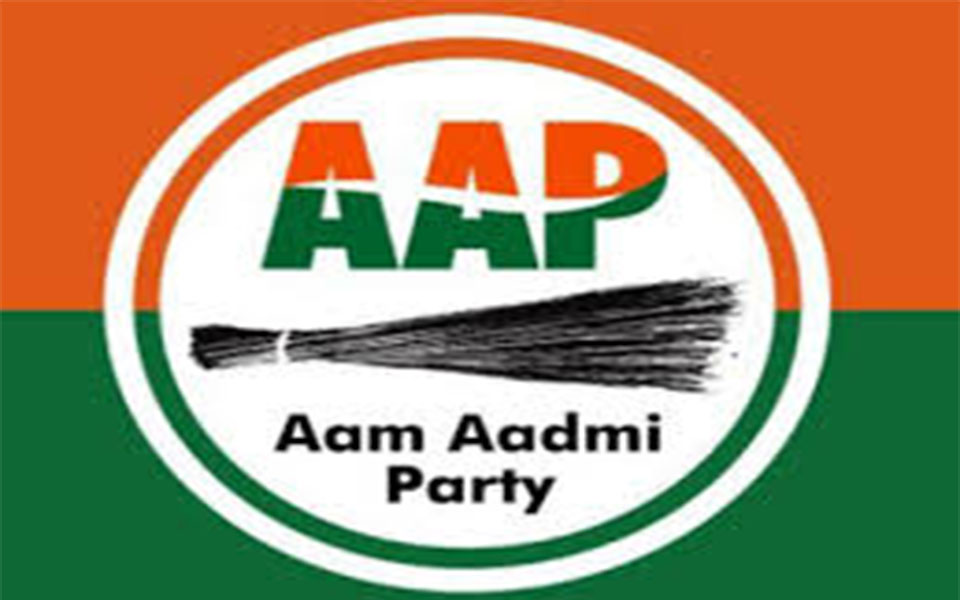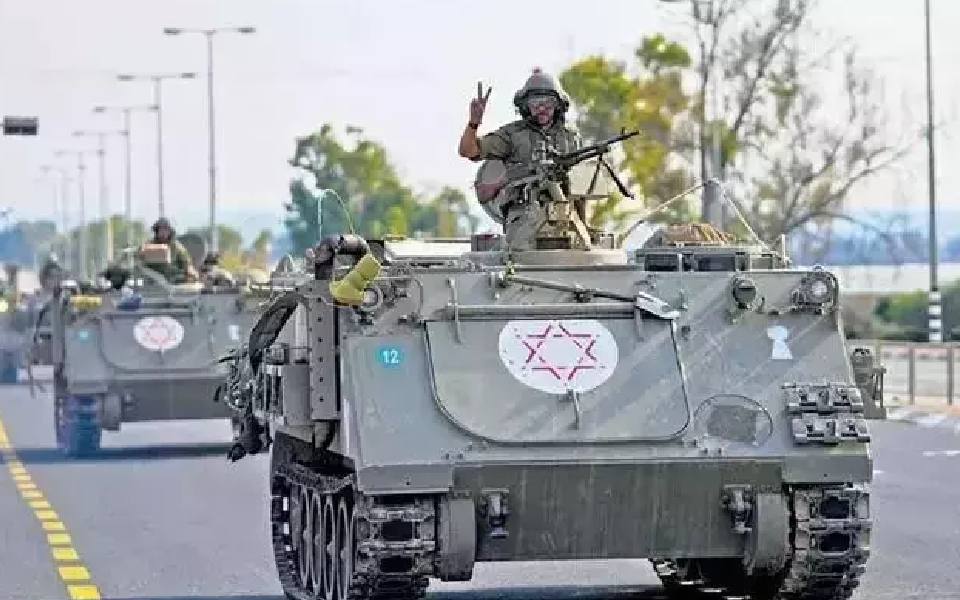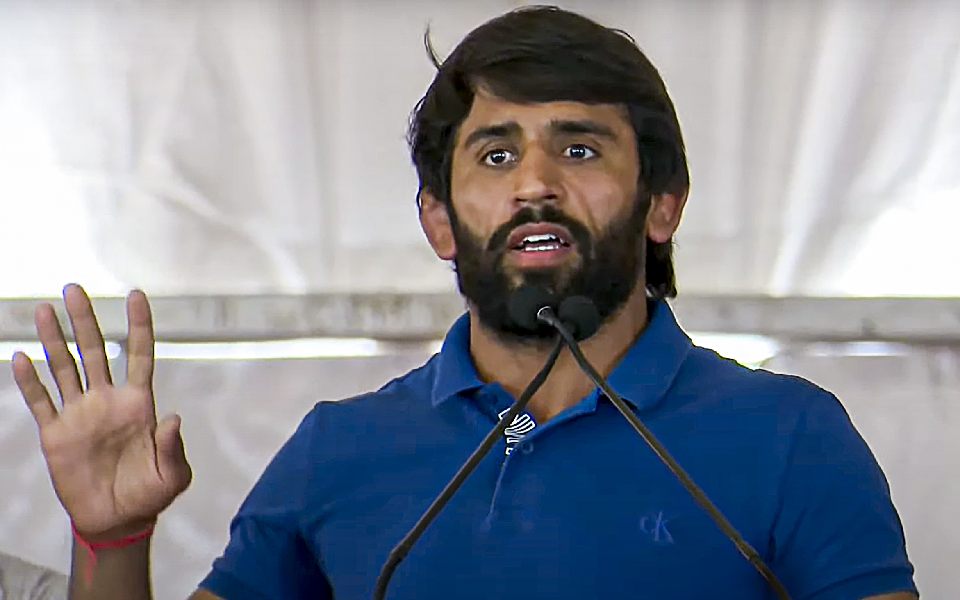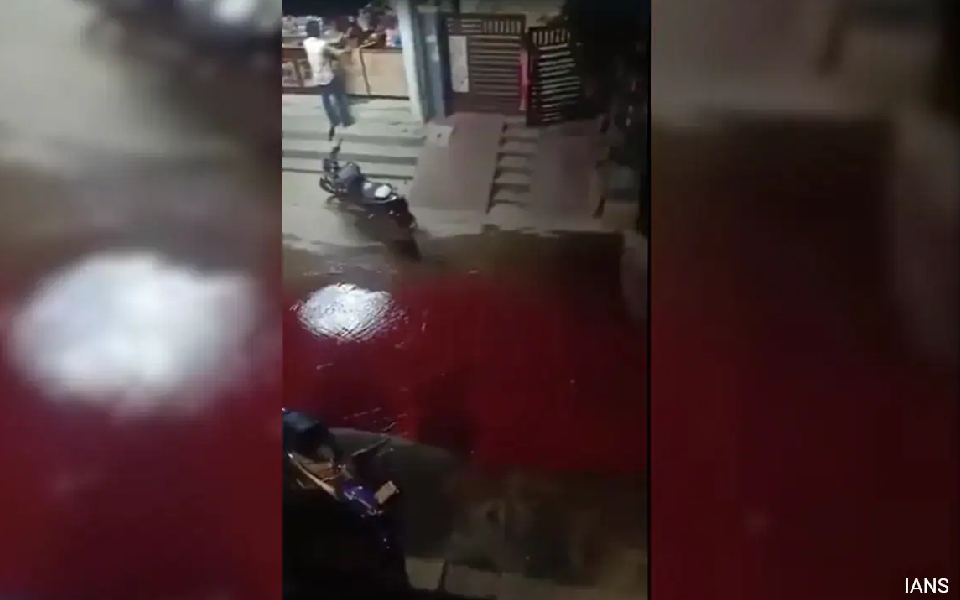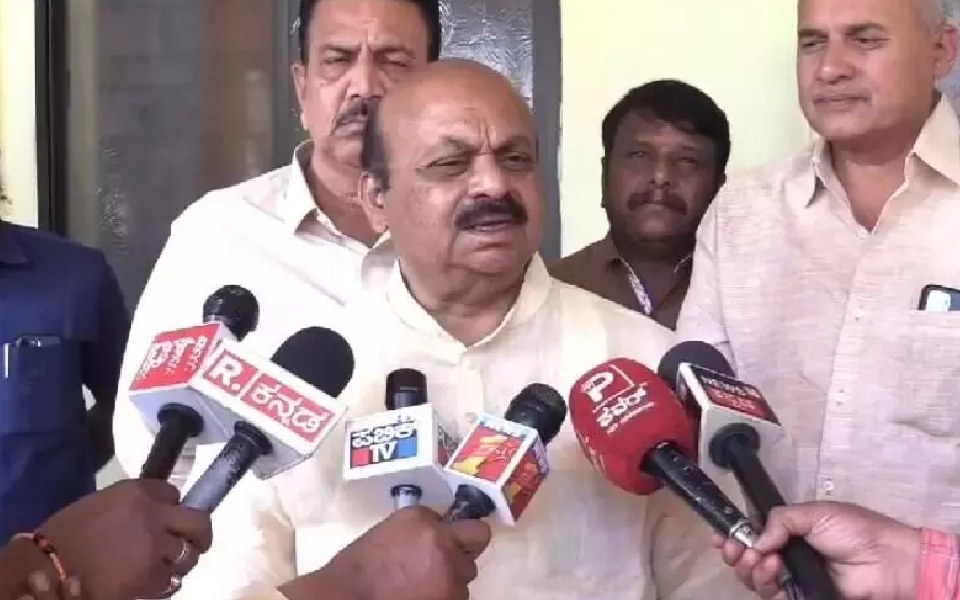New Delhi, June 14: Delhi's ruling AAP on Thursday sought Prime Minister Narendra Modi's intervention to end the "strike" by the IAS officers as there has been no communication from the Lt Governor's office over the sit-in protest by Delhi Chief Minister Arvind Kejriwal and his cabinet colleagues.
The sit-in by Kejriwal, Deputy Chief Minister Manish Sisodia and Cabinet ministers Satyendar Jain and Gopal Rai at the Lt. Governor's office entered its fourth day on Thursday, after which Kejriwal wrote to Modi urging him to intervene in the matter of the "strike" by the IAS officers, accusing Lt Governor Anil Baijal of doing "nothing" in this regard.
In the letter, Kejriwal informed Modi the officers have not been attending meetings with ministers for the past three months and cited instances when the government work was affected.
He also said that he hope Modi will allow them to work for the people of Delhi, adding that "no one should be allowed to trample upon people's will".
Recalling former Prime Minister Atal Bihari Vajpayee, he said: "I hope sir that Modiji will also follow in the footsteps of Atalji, respect people's will and allow opposition-ruled states to work for the people."
On social media, the Aam Aadmi Party (AAP) has launched a campaign #ModjiForgiveDelhi. Party members, by posting videos, are requesting Modi to let the elected government work by asking the IAS officers to join back the work.
Social Welfare and SC/ST Minister Rajendra Pal Gautam, in his video, said: "Modiji, don't take revenge from the people. Please ask your IAS officers to join back the work."
Durgesh Pathak, in-charge of the National Organisation Building Team, also posted a video saying: "Modiji, Namaste. We know that people of Delhi had defeated you very badly in the election. And you are just taking revenge from the people. This is not right. There will be elections after two years. You can contest that election. Do some good, positive work. Please ask your IAS officers to join back the work."
Atishi Marlena, who served as an advisor on education to the Delhi government for three years, said in a video: "Namaste Modiji. The people of Delhi are upset. You have ordered the strike by the IAS officers. The work related to de-silting of drains is not able to complete due to this strike. the monsoon is approaching, the roads will be flooded. So we are requesting you to order the IAS officers to call off the strike."
Similarly, Sisodia's former media advisor Arunoday Prakash and other people from the party also posted their videos.
AAP leader Dilip Pandey, in his video, asked Modi to not punish the people of Delhi.
"Punish us the way you want, but don't punish the people of Delhi. Your officers are not working, due to which the work is affected...Please ask your IAS officers to join back the work," he said.
Let the Truth be known. If you read VB and like VB, please be a VB Supporter and Help us deliver the Truth to one and all.
Beirut, Nov 26: Israeli Prime Minister Benjamin Netanyahu said Tuesday that he would recommend his cabinet adopt a United States-brokered ceasefire agreement with Lebanon's Hezbollah, as Israeli warplanes struck across Lebanon, killing at least 23 people.
The Israeli military also issued a flurry of evacuation warnings — a sign it was aiming to inflict punishment on Hezbollah down to the final moments before any ceasefire takes hold. For the first time in the conflict, Israeli ground troops reached parts of Lebanon's Litani River, a focal point of the emerging deal.
In a televised statement, Netanyahu said he would present the ceasefire to Cabinet ministers later on Tuesday, setting the stage for an end to nearly 14 months of fighting.
Netanyahu said the vote was expected later Tuesday. It was not immediately clear when the ceasefire would go into effect, and the exact terms of the deal were not released. The deal does not affect Israel's war against Hamas in Gaza, which shows no signs of ending.
The evacuation warnings covered many areas, including parts of Beirut that previously have not been targeted. The warnings, coupled with fear that Israel was ratcheting up attacks before a ceasefire, sent residents fleeing. Traffic was gridlocked, and some cars had mattresses tied to them. Dozens of people, some wearing their pajamas, gathered in a central square, huddling under blankets or standing around fires as Israeli drones buzzed loudly overhead.
Hezbollah, meanwhile, kept up its rocket fire, triggering air raid sirens across northern Israel.
Lebanese officials have said Hezbollah also supports the deal. If approved by all sides, the deal would be a major step toward ending the Israel-Hezbollah war that has inflamed tensions across the region and raised fears of an even wider conflict between Israel and Hezbollah's patron, Iran.
The deal calls for a two-month initial halt in fighting and would require Hezbollah to end its armed presence in a broad swath of southern Lebanon, while Israeli troops would return to their side of the border. Thousands of Lebanese troops and UN peacekeepers would deploy in the south, and an international panel headed by the United States would monitor all sides' compliance.
But implementation remains a major question mark. Israel has demanded the right to act should Hezbollah violate its obligations. Lebanese officials have rejected writing that into the proposal. Israel's Defense Minister Israel Katz insisted on Tuesday that the military would strike Hezbollah if the U.N. peacekeeping force, known as UNIFIL, doesn't provide “effective enforcement” of the deal.
“If you don't act, we will act, and with great force,” Katz said, speaking with UN special envoy Jeanine Hennis-Plasschaert.
The European Union's top diplomat, Josep Borrell, said Tuesday that Israel's security concerns had been addressed in the deal also brokered by France.
“There is not an excuse for not implementing a ceasefire. Otherwise, Lebanon will fall apart,” Borrell told reporters in Italy on the sidelines of a Group of Seven meeting. He said France would participate on the ceasefire implementation committee at Lebanon's request.
Bombardment of Beirut's southern suburbs continues
Even as Israeli, US, Lebanese and international officials have expressed growing optimism over a ceasefire, Israel has continued its campaign in Lebanon, which it says aims to cripple Hezbollah's military capabilities.
An Israeli strike on Tuesday levelled a residential building in the central Beirut district of Basta — the second time in recent days warplanes have hit the crowded area near the city's downtown. At least seven people were killed and 37 wounded, according to Lebanon's Health Ministry.
Three people were killed in a separate strike in Beirut and three in a strike on a Palestinian refugee camp in southern Lebanon. Lebanese state media said another 10 people were killed in the eastern Baalbek province. Israel says it targets Hezbollah fighters and their infrastructure.
Earlier, Israeli jets struck at least six buildings in Beirut's southern suburbs. One strike slammed near the country's only airport, sending plumes of smoke into the sky. The airport has continued to function despite its location on the Mediterranean coast next to the densely populated suburbs where many of Hezbollah's operations are based.
Israeli military spokesman Avichay Adraee issued evacuation warnings for 20 buildings in the suburbs, as well as a warning for the southern town of Naqoura where UNIFIL is headquartered.
UNIFIL spokesperson Andrea Tenenti told The Associated Press that peacekeepers will not evacuate.
Other strikes hit in the southern city of Tyre, where the Israeli military said it killed a local Hezbollah commander.
The Israeli military also said its ground troops clashed with Hezbollah forces and destroyed rocket launchers in the Slouqi area on the eastern end of the Litani River, a few kilometres from the Israeli border.
Previous ceasefire hopes were dashed
Under the ceasefire deal, Hezbollah would be required to move its forces north of the Litani, which in some places is about 30 kilometers (20 miles) north of the border.
A ceasefire between Israel and Hezbollah, the strongest Iranian-backed force in the region, would likely significantly calm regional tensions that have led to fears of a direct, all-out war between Israel and Iran. It's not clear how the ceasefire will affect the Israel-Hamas war in Gaza. Hezbollah had long insisted that it would not agree to a ceasefire until the war in Gaza ends, but it dropped that condition.
Hezbollah began firing into northern Israel, saying it was showing support for the Palestinians, a day after Hamas carried out its Oct. 7, 2023, attack on southern Israel, triggering the Gaza war. Israel returned fire on Hezbollah, and the two sides have been exchanging barrages ever since.
Israel escalated its campaign of bombardment in mid-September and later sent troops into Lebanon, vowing to put an end to Hezbollah fire so tens of thousands of evacuated Israelis could return to their homes.
More than 3,760 people have been killed by Israeli fire in Lebanon the past 13 months, many of them civilians, according to Lebanese health officials. The bombardment has driven 1.2 million people from their homes. Israel says it has killed more than 2,000 Hezbollah members.
Hezbollah fire has forced some 50,000 Israelis to evacuate in the country's north, and its rockets have reached as far south in Israel as Tel Aviv. At least 75 people have been killed, more than half of them civilians. More than 50 Israeli soldiers have died in the ground offensive in Lebanon.
After previous hopes for a ceasefire were dashed, U.S. officials cautioned that negotiations were not yet complete and noted there could be last-minute hitches that delay or destroy an agreement.
“Nothing is done until everything is done,” White House national security spokesman John Kirby said.
While the ceasefire proposal is expected to be approved if Netanyahu brings it to a vote in his security Cabinet, one hard-line member, National Security Minister Itamar Ben-Gvir, said he would oppose it. He said on X that a deal with Lebanon would be a “big mistake” and a “missed historic opportunity to eradicate Hezbollah.”

